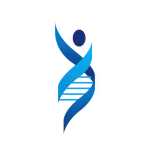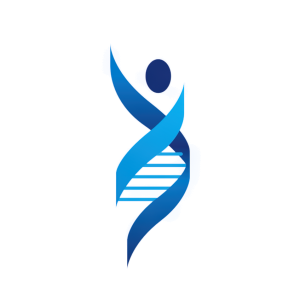Welcome to our dedicated page for Salarius Pharmaceuticals news (Ticker: SLRX), a resource for investors and traders seeking the latest updates and insights on Salarius Pharmaceuticals stock.
Salarius Pharmaceuticals Inc (NASDAQ: SLRX) is a clinical-stage biotechnology company pioneering targeted therapies for cancers with high unmet medical needs. This page serves as the definitive source for verified news and official updates, providing stakeholders with timely insights into the company's progress in oncology drug development.
Investors and researchers will find curated press releases covering clinical trial milestones, regulatory developments, and strategic partnerships. Key focus areas include updates on Salarius' protein degradation therapies and inhibitor candidates, financial disclosures, and collaborative research initiatives in precision medicine.
All content is rigorously sourced from SEC filings, corporate communications, and validated industry reports. The repository is maintained to support informed analysis while adhering to financial compliance standards. Bookmark this page for efficient tracking of SLRX's advancements in addressing gene dysregulation through innovative biopharmaceutical approaches.
Decoy Therapeutics announces that MIT Professor and Moderna co-founder Robert S. Langer will join their Scientific Advisory Board following the completion of their merger with Salarius Pharmaceuticals (NASDAQ: SLRX). The appointment comes after the January 13, 2025 merger agreement announcement between the companies.
Dr. Langer, a renowned scientist and entrepreneur, brings extensive experience in drug delivery systems and tissue engineering. His pioneering work has contributed to breakthrough medicines like Roche's Avastin and Moderna's Spikevax COVID vaccine. As an MIT Institute Professor with over 1,600 scientific papers and 400+ company patent licenses, Dr. Langer will support Decoy's development of novel peptide-conjugate therapeutics through their proprietary IMP3ACT™ platform.
Decoy Therapeutics, set to merge with Salarius Pharmaceuticals (NASDAQ: SLRX), announced that its antiviral drug candidates have shown promising in silico activity against measles and Nipah viruses. These candidates were previously demonstrated to be effective against respiratory syncytial virus (RSV) and human parainfluenza virus 3 (hPIV3).
The company's IMP3ACT™ platform uses AI and machine learning to design peptide-conjugate antivirals that target multiple viruses simultaneously. The platform's drug candidates act directly on viruses rather than human cells, potentially reducing disease severity and duration. Using computational tools, Decoy identified measles antiviral binding in just five days.
Following the January 13, 2025 merger agreement, the combined entity will be named Decoy Therapeutics, focusing on developing a pipeline of self-administered direct-acting antivirals and advancing both infectious disease and oncology programs.
Salarius Pharmaceuticals (SLRX) reported its 2024 financial results, highlighting a reduced net loss of $5.6 million ($5.79 per share) compared to $12.5 million in 2023. The company's cash position stands at $2.4 million as of December 31, 2024, expected to sustain operations through Q2 2025.
The company is progressing with its planned merger with Decoy Therapeutics, which will leverage Decoy's IMP3ACT™ platform for developing peptide conjugate therapeutics targeting respiratory viruses and cancer. The merged entity will be named Decoy Therapeutics and will incorporate Salarius' SP-3164 protein degrader into a PROTACS drug candidate.
Additionally, updates are expected later in the year from the ongoing MD Anderson Cancer Center Phase 1/2 clinical trial of seclidemstat in combination with azacitidine for hematologic cancers.
Salarius Pharmaceuticals (SLRX) announces the resumption of patient enrollment in their investigator-initiated Phase 1/2 clinical trial at MD Anderson Cancer Center, evaluating seclidemstat combined with azacitidine for treating myelodysplastic syndrome (MDS) and chronic myelomonocytic leukemia (CMML).
The trial previously reported promising interim results, showing a 43% overall response rate among 14 high-risk patients who had failed prior therapy, with median overall survival of 18.5 months compared to typical 4-6 months. The FDA's partial clinical hold, implemented in July 2024 following a serious adverse event, has now been lifted.
Additionally, Salarius has signed a merger agreement with Decoy Therapeutics, forming a new company focused on peptide conjugate therapeutics for respiratory infections and GI oncology. The company will continue supporting the seclidemstat trial while exploring strategic alternatives for the drug.
Salarius Pharmaceuticals (NASDAQ: SLRX) and Decoy Therapeutics announced a definitive merger agreement. Decoy's IMP3ACT™ platform uses AI and ML for rapid peptide conjugate drug design. The combined company, to be named Decoy Therapeutics, will focus on developing peptide conjugate therapeutics for respiratory viruses and cancer.
Decoy has secured $7 million in non-dilutive funding from federal governments, corporations, and The Bill & Melinda Gates Foundation. Salarius' oral small molecule protein degrader SP-3164 will be integrated into Decoy’s pipeline. The new entity will be led by Decoy's co-founders and include executives from both companies.
Decoy aims to file an IND for a pan-coronavirus antiviral within 12 months. The merger is expected to create multiple value-creating inflection points, enhancing shareholder value. Ongoing development of Salarius' seclidemstat for hematologic cancers will continue, with strategic alternatives being evaluated.
Salarius Pharmaceuticals presented clinical data on seclidemstat combined with azacitidine for treating higher-risk myelodysplastic syndrome (MDS) and chronic myelomonocytic leukemia (CMML) at the 2024 European Hematology Association Annual Meeting.
The Phase 1/2 study reported a 43% overall response rate among 14 patients, with a median overall survival of 18.5 months and median event-free survival of 7.2 months.
The study included 16 enrolled patients, with 14 evaluable for efficacy and 15 for toxicity. Dose-limiting toxicity was observed in one patient in the 750mg BID cohort, leading to cohort expansion.
The maximum tolerated dose has not been reached, and the study will proceed to higher dose levels. Salarius believes the adverse events are manageable.
Results are considered promising for patients who have previously failed hypomethylating agent therapy.
Salarius Pharmaceuticals (NASDAQ: SLRX) announced a 1-for-8 reverse stock split effective June 14, 2024. Trading on a split-adjusted basis will begin on June 17, 2024. The reverse split aims to regain compliance with the $1.00 minimum closing bid price required by Nasdaq. This move reduces the number of issued and outstanding shares from approximately 4.7 million to about 0.6 million. Stockholders approved the proposal on May 9, 2024. The reverse split will uniformly affect all stockholders without altering ownership percentages, though cash will be given in lieu of fractional shares. The split does not impact the number of authorized shares or their par values. Equiniti Trust Company is the exchange agent for the split.


